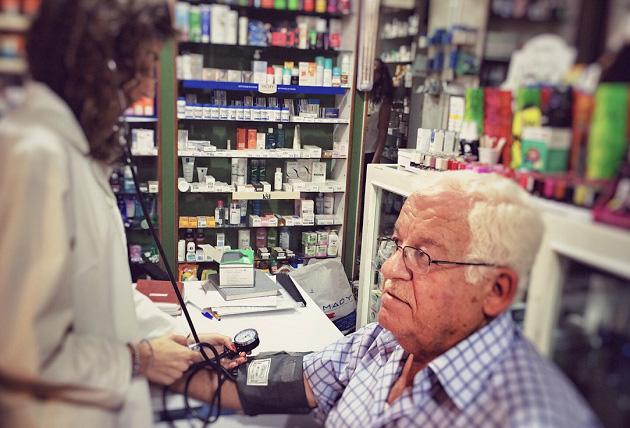World Health Organization (WHO) and Lebanon’s Ministry of Public Health are joining efforts to aid people who are diagnosed with heart diseases in the country. With increasing numbers of patients battling cardiovascular diseases, thousands among the Lebanese population are currently benefiting from such joint efforts through a set of initiatives that target cardiovascular illnesses along with others, such as lung diseases, cancer and diabetes. Cardiovascular diseases are highly focused on due to their high death toll in Lebanon with a total of 47 percent of all non-communicable diseases.
A pilot initiative was launched in 2012 under the name “Prediction and Management of Total Cardiovascular Risk in the PHC Network in Lebanon”. The objective of the initiative was to prevent cardiovascular events by assessing and managing risk, and manage people with hypertension, hyperglycemia and other pre-established heart conditions while modifying behavioral risk factors, such as diet and tobacco use. Due to the pilot’s success, the project is now fully launched.
The initiative has expanded to over two thirds of the primary health care network and is available in 217 clinical facilities across the country. Over 14,000 people have undergone initial testing such as the body mass index, fasting blood sugar, blood pressure, and a variety of lifestyle habits such as the use of alcohol and smoking. Alarmingly, the results have shown that an average of two out of every five people are at risk of cardiovascular diseases, and were accordingly required to undergo further tests.
WHO’s acting representative in Lebanon, Dr. Gabriele Riedner, stated that the rise of non-communicable diseases in Lebanon is predicted to have a grave impact on public health, in addition to creating further financial burden on the small nation. “One third of the entire Lebanese population is exposed to one or two non-communicable disease risk factors, such as tobacco smoking, unhealthy diet and physical inactivity,” Riedner explained.
Moreover, further strain on the health services has been attributed to the large number of refugees in Lebanon.” Vulnerable people are a greater risk of poor health and stress,” said Riender. “Increased consumption of foods that are high in fat, salt, sugar, as well as the reduced physical activity are all causes of the growing number of refugees suffering from a non-communicable disease.”
A previous program providing patients who suffer from non-communicable diseases with the required medication was launched by the Lebanese Ministry of Public Health, and due to the high demand, the program has now expanded through the support from the European Union and WHO.
WHO also provided medication to treat over 150,000 people suffering from other cardiovascular diseases, hypertension, asthma, mental illnesses and chronic conditions.


Comments (0)